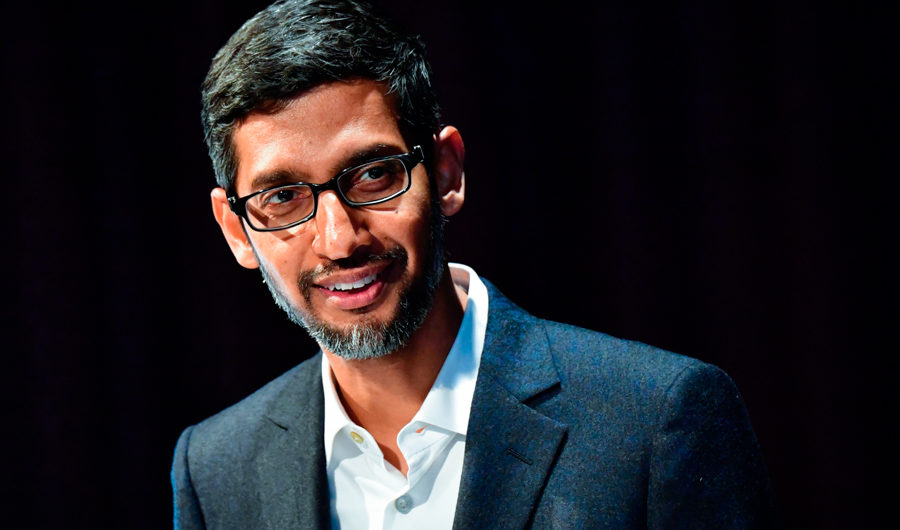Larry Page and Sergey Brin, who established the inquiry monster in a Silicon Valley carport, are giving over control.
Larry Page and Sergey Brin, the previous Stanford University understudies who established Google in a Silicon Valley carport, said Tuesday they are moving to one side as pioneers of the web behemoth they began two decades prior. Page and Brin are giving control to Sundar Pichai, who will take over as CEO of Google’s parent organization Alphabet, notwithstanding keeping up his flow duties as CEO of the pursuit monster.
The declaration comes four years after Google rebuilt itself under an umbrella called Alphabet. As a major aspect of the move, Google’s web organizations, including its internet searcher and maps application, were isolated from progressively trial ventures like driverless vehicles. Pichai became CEO of Google, and Page and Brin controlled Alphabet.
Presently Pichai, an Indian settler who joined the organization in 2004, is responsible for everything.
“With Alphabet now well-established, and Google and the Other Bets operating effectively as independent companies, it’s the natural time to simplify our management structure,” Page and Brin said in a joint articulation. The prime supporters said they would remain dynamic as board individuals.
“I’m excited about Alphabet and its long term focus on tackling big challenges through technology,” Pichai said in a statement. “I’m looking forward to continuing to work with Larry and Sergey in our new roles.”
Pichai additionally tweeted that Alphabet had an “timeless mission.”
Google didn’t make Page, Brin or Pichai accessible for interviews.
Pichai’s climb comes as Google and Alphabet face investigation from all sides. The organization is an objective of antitrust tests by both government and state authorities. Google is additionally amidst a portion of its most noteworthy social difficulties as a venture. A year prior, workers strolled off the activity to dissent of the executives’ apparent shortcoming in taking care of claims of sexual unfortunate behavior at the hunt monster. They’ve whined about Google’s agreement with the Pentagon to create man-made consciousness and its proposed work on an internet searcher for China, known as Project Dragonfly.
As though to feature the developing clash over Google’s open culture, four previous workers said they intended to document charges of unreasonable work rehearses against the organization around the same time Brin and Page said they were moving to one side. The previous workers, who were terminated in November, blamed Google for “engaging in protected labor organizing.” Google said the representatives were terminated for abusing information security strategies, not arranging.
Letters in order board executive John Hennessy hailed the work Page and Brin did as authors. “It’s difficult to exaggerate Larry and Sergey’s commitments in the course of recent years. I’m appreciative that they will proceed with their contribution on the Board.”
The adjustment in administration isn’t the first at the organization. Eric Schmidt, who previously ran programming producer Novell, joined Google in 2001 and supervised the organization as it opened up to the world three years after the fact. Under Schmidt, the organization extended past search into cell phones, web transmission and online video.
Brin and Page referenced the previous authority change in their letter. “We’ve never been ones to hold on to management roles when we think there’s a better way to run the company,” the pair composed.
Money Street wasn’t bothered by the changing of the gatekeeper. The organization’s stock rose somewhat less than one percent in twilight preparing.
Tim Bajarin, leader of Creative Strategies, said Pichai was the characteristic decision and had become general society face of the pursuit mammoth after Page surrendered everyday administration. “He’s done a great job at Google even though Google is under tremendous scrutiny,” Bajarin said of Pichai’s presentation.
In spite of the fact that Page and Brin are Silicon Valley sovereignty, the pair have been pointedly reprimanded for retreating away from plain sight during the most wild time in the organization’s history. At the point when pioneers from Facebook and Twitter were gathered before Congress a year ago, Page and Pichai were no-appears. An unfilled seat with a name perusing “Google” sat by Twitter CEO Jack Dorsey and Facebook COO Sheryl Sandberg.
As Pichai manages the organization’s discussions, he’ll likewise concentrate the organization on man-made reasoning innovation and making its administrations increasingly accommodating and customized for shoppers. “Think of it as building your own individual Google,” they told CNET in 2016, preceding making their introduction as CEO at the organization’s yearly engineer gathering.
All through their letter, Brin and Page contrasted Google and its improvement with an individual’s development. Today, the fellow benefactors stated, Google would be 21, prepared to leave the perch. “While it has been a tremendous privilege to be deeply involved in the day-to-day management of the company for so long,” the pair wrote, “we believe it’s time to assume the role of proud parents—offering advice and love, but not daily nagging!”
Disclaimer: The views, suggestions, and opinions expressed here are the sole responsibility of the experts. No Times World USA journalist was involved in the writing and production of this article.





